Sleep Apnea
What is Sleep Apnea?
Sleep Apnea is a condition whereby your airway either partially or completely obstructs or closes while you are asleep. These obstructions can last for 10 seconds or more, sometimes up to 40 seconds and are often characterised by a pause in snore and a drop in blood oxygen saturation.
What happens to your airway during sleep apnea?
A patent airway is pictured below. It does not have an obstruction and air passes through the airway without any resistance
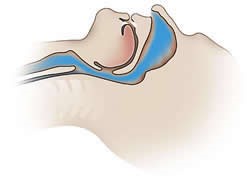
When our airway obstructs is reduces the amount of air passing through our airway and can cause our airway to vibrate as the air rushed to pass through the reduced space. It can even be fully occluded, this is caused by lack of muscle tone and gravity as we lay supine (on our backs)
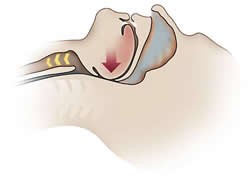
An obstructed airway means we are not getting enough air. We then begin to suffocate as we can’t get enough air into our system and we awake out of our sleep. When we awake we get enough support of our airway to then fall asleep and the circle of airway obstruction happens again. This can happen numerous times during the night causing us to have sleepless nights and daytime fatigue. It also causes us to have an increased pulse rate and blood pressure which again affects our daytime patterns and finally our cardiovascular system.
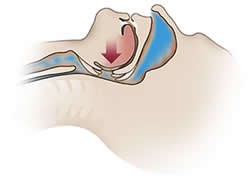
Even with a partially obstructed airway we can have the following problems:
- Each time an obstruction occurs, our body decreases the amount of oxygen it inhales and retains and reduces the amount of carbon dioxide it exhales.
- During these moments our body wakes us up in an attempt to tell us we need more oxygen. We then awake enough to remove the obstruction and fall asleep again and the cycle of airway obstruction occurs again.
- During airway obstruction our body does not get to totally relax. Meaning that our pulse rate, blood pressure remain elevated and even our body’s automatic response system, resulting in increasingly more severe apneas and hypopneas
- Daytime fatigue is elevated because of our sleep deprivation.
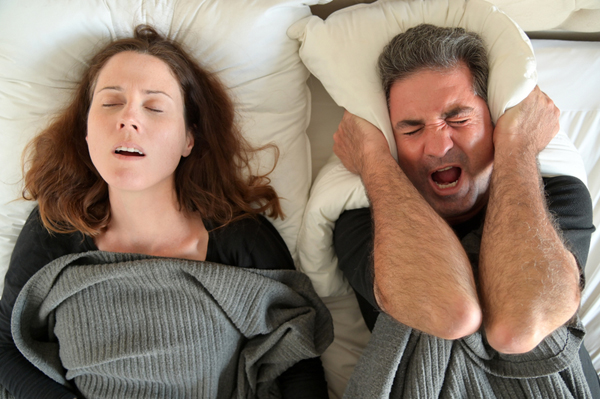
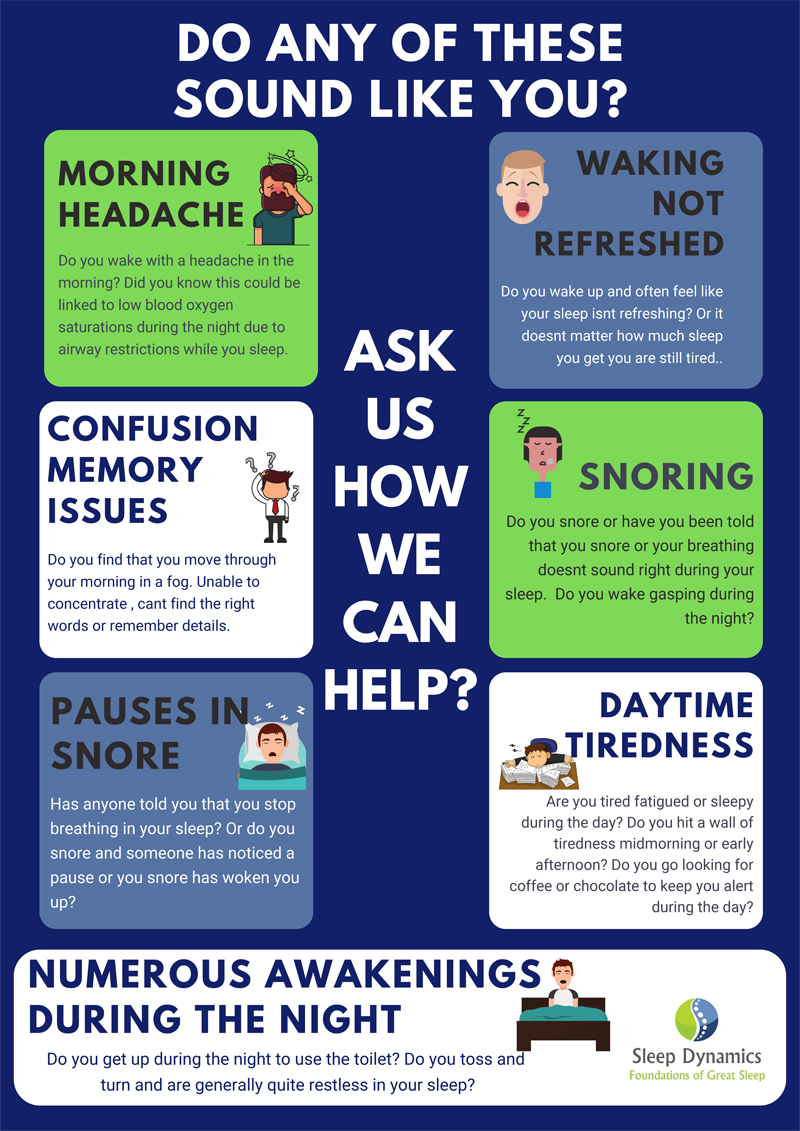
Complications of Sleep
People who have severe sleep apnea that is left untreated are:
- 4 x more likely to have a stroke,
- 2 x as likely to develop depression
- 5 x greater risk of cardiovascular death
